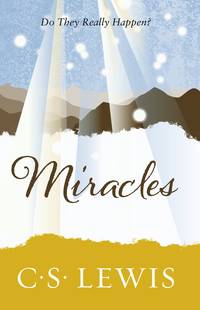
Полная версия
The Pilgrim’s Regress
5
LEAH FOR RACHEL
‘Romantic’ poetry professes to give what hitherto John has only desired – For a moment it seems to have kept its promise – The rapture does not last but dwindles into technical appreciation and sentiment
As they ate John told him about the Island.
‘You will find your Island here,’ said Mr Halfways, looking into John’s eyes.
‘But how can it be here in the middle of the city?’
‘It needs no place. It is everywhere and nowhere. It refuses entry to none who asks. It is an Island of the Soul,’ said the old gentleman. ‘Surely even in Puritania they told you that the Landlord’s castle was within you?’
‘But I don’t want the castle,’ said John. ‘And I don’t believe in the Landlord.’
‘What is truth?’ said the old man. ‘They were mistaken when they told you of the Landlord: and yet they were not mistaken. What the imagination seizes as beauty must be truth, whether it existed before or not. The Landlord they dreamed to find, we find in our hearts: the Island you seek for, you already inhabit. The children of that country are never far from their fatherland.’
When the meal was ended the old gentleman took a harp, and at the first sweep of his hand across the strings John began to think of the music that he had heard by the window in the wall. Then came the voice: and it was no longer merely silver sweet and melancholy like Mr Halfways’ speaking voice, but strong and noble and full of strange overtones, the noise of the sea, and of all birds, and sometimes of wind and thunder. And John began to see a picture of the Island with his eyes open: but it was more than a picture, for he sniffed the spicy smell and the sharp brine of the sea mixed with it. He seemed to be in the water, only a few yards from the sand of the Island. He could see more than he had ever seen before. But just as he had put down his feet and touched a sandy bottom and was beginning to wade ashore, the song ceased. The whole vision went away. John found himself back in the dusky room, seated on a low divan, with Media by his side.
‘Now I shall sing you something else,’ said Mr Halfways.
‘Oh, no,’ cried John, who was sobbing. ‘Sing the same again. Please sing it again.’
‘You had better not hear it twice in the same evening. I have plenty of other songs.’
‘I would die to hear the first one again,’ said John.
‘Well, well,’ said Mr Halfways, ‘perhaps you know best. Indeed, what does it matter? It is as short to the Island one way as another.’ Then he smiled indulgently and shook his head, and John could not help thinking that his talking voice and talking manner were almost silly after the singing. But as soon as the great deep wall of the music began again it swept everything else from his mind. It seemed to him that this time he got more pleasure from the first few notes, and even noticed delicious passages which had escaped him at the first hearing; and he said to himself, ‘This is going to be even better than the other. I shall keep my head this time and sip all the pleasure at my ease.’ I saw that he settled himself more comfortably to listen and Media slipped her hand into his. It pleased him to think that they were going to the Island together. Now came the vision of the Island again: but this time it was changed, for John scarcely noticed the Island because of a lady with a crown on her head who stood waiting for him on the shore. She was fair, divinely fair. ‘At last,’ said John, ‘a girl with no trace of brown.’ And he began again to wade ashore holding out his arms to embrace that queen: and his love for her appeared to him so great and so pure, and they had been parted for so long, that his pity for himself and her almost overwhelmed him. And as he was about to embrace her the song stopped.
‘Sing it again, sing it again,’ cried John, ‘I liked it better the second time.’
‘Well, if you insist,’ said Mr Halfways with a shrug. ‘It is nice to have a really appreciative audience.’ So he sang it the third time. This time John noticed yet more about the music. He began to see how several of the effects were produced and that some parts were better than others. He wondered if it were not a trifle too long. The vision of the Island was a little shadowy this time, and he did not take much notice of it. He put his arm round Media and they lay cheek to cheek. He began to wonder if Mr Halfways would never end: and when at last the final passage closed, with a sobbing break in the singer’s voice, the old gentleman looked up and saw how the young people lay in one another’s arms. Then he rose and said:
‘You have found your Island – you have found it in one another’s hearts.’
Then he tiptoed from the room, wiping his eyes.
6
ICHABOD
Rapture would finally turn into Lust, but that in the nick of time the ‘modern’ literary movement offers to ‘debunk’ it
‘Media, I love you,’ said John.
‘We have come to the real Island,’ said Media.
‘But oh, alas!’ said he, ‘so long our bodies why do we forbear?’
‘Else a great prince in prison lies,’ sighed she.
‘No one else can understand the mystery of our love,’ said he.
At that moment a brisk, hobnailed step was heard and a tall young man strode into the room carrying a light in his hand. He had coal-black hair and a straight mouth like the slit in a pillar-box, and he was dressed in various kinds of metal wire. As soon as he saw them he burst into a great guffaw. The lovers instantly sprang up and apart.
‘Well, Brownie,’ said he, ‘at your tricks again?’
‘Don’t call me that name,’ said Media, stamping her foot, ‘I have told you before not to call me that.’
The young man made an obscene gesture at her, and then turned to John, ‘I see that old fool of a father of mine has been at you?’
‘You have no right to speak that way of Father,’ said Media. Then, turning to John, her cheeks flaming, her breast heaving, she said, ‘All is over. Our dream – is shattered. Our mystery – is profaned. I would have taught you all the secrets of love, and now you are lost to me for ever. We must part. I shall go and kill myself,’ and with that she rushed from the room.
7
NON EST HIC
‘Don’t bother about her,’ said the young man. ‘She has threatened that a hundred times. She is only a brown girl, though she doesn’t know it.’
‘A brown girl!’ cried John, ‘And your father …’
‘My father has been in the pay of the Brownies all his life. He doesn’t know it, the old chuckle-head. Calls them the Muses, or the Spirit, or some rot. In actual fact, he is by profession a pimp.’
‘And the Island?’ said John.
‘We’ll talk about it in the morning. Ain’t the kind of Island you’re thinking of. Tell you what. I don’t live with my father and my precious sister. I live in Eschropolis and I am going back tomorrow. I’ll take you down to the laboratory and show you some real poetry. Not fantasies. The real thing.’
‘Thank you very much,’ said John.
Then young Mr Halfways found his room for him and the whole of that household went to bed.
8
GREAT PROMISES
The poetry of the Machine Age is so very pure
Gus Halfways was the name of Mr Halfways’ son. As soon as he rose in the morning he called John down to breakfast with him so that they might start on their journey. There was no one to hinder them, for old Halfways was still asleep and Media always had breakfast in bed. When they had eaten, Gus brought him into a shed beside his father’s house and showed him a machine on wheels.
‘What is this?’ said John.
‘My old bus,’ said young Halfways. Then he stood back with his head on one side and gazed at it for a bit: but presently he began to speak in a changed and reverent voice.
‘She is a poem. She is the daughter of the spirit of the age. What was the speed of Atlanta to her speed? The beauty of Apollo to her beauty?’
Now beauty to John meant nothing save glimpses of his Island, and the machine did not remind him of his Island at all: so he held his tongue.
‘Don’t you see?’ said Gus. ‘Our fathers made images of what they called gods and goddesses; but they were really only brown girls and brown boys whitewashed – as anyone found out by looking at them too long. All self-deception and phallic sentiment. But here you have the real art. Nothing erotic about her, eh?’
‘Certainly not,’ said John, looking at the cog-wheels and coils of wire, ‘it is certainly not at all like a brown girl.’ It was, in fact, more like a nest of hedgehogs and serpents.
‘I should say not,’ said Gus. ‘Sheer power, eh? Speed, ruthlessness, austerity, significant form, eh? Also’ (and here he dropped his voice) ‘very expensive indeed.’
Then he made John sit in the machine and he himself sat beside him. Then he began pulling the levers about and for a long time nothing happened: but at last there came a flash and a roar and the machine bounded into the air and then dashed forward. Before John had got his breath they had flashed across a broad thoroughfare which he recognised as the main road, and were racing through the country to the north of it – a flat country of square stony fields divided by barbed wire fences. A moment later they were standing still in a city where all the houses were built of steel.
BOOK 3
THROUGH DARKEST ZEITGEISTHEIM
And every shrewd turn was exalted among Men … and simple goodness, wherein nobility doth ever most participate, was mocked away and clean vanished.
THUCYDIDES
Now live the lesser, as lords of the world, The busy troublers. Banished is our glory, The earth’s excellence grows old and sere.
ANON
The more ignorant men are, the more convinced are they that their little parish and their little chapel is an apex to which civilisation and philosophy has painfully struggled up.
SHAW
1
ESCHROPOLIS
The poetry of the Silly Twenties – The ‘Courage’ and mutual loyalty of Artists
Then I dreamed that he led John into a big room rather like a bathroom: it was full of steel and glass and the walls were nearly all window, and there was a crowd of people there, drinking what looked like medicine and talking at the tops of their voices. They were all either young, or dressed up to look as if they were young. The girls had short hair and flat breasts and flat buttocks so that they looked like boys: but the boys had pale, egg-shaped faces and slender waists and big hips so that they looked like girls – except for a few of them who had long hair and beards.
‘What are they so angry about?’ whispered John.
‘They are not angry,’ said Gus; ‘they are talking about Art.’
Then he brought John into the middle of the room and said:
‘Say! Here’s a guy who has been taken in by my father and wants some real hundred per cent music to clean him out. We had better begin with something neo-romantic to make the transition.’
Then all the Clevers consulted together and presently they all agreed that Victoriana had better sing first. When Victoriana rose John at first thought that she was a school-girl: but after he had looked at her again he perceived that she was in fact about fifty. Before she began to sing she put on a dress which was a sort of exaggerated copy of Mr Halfways’ robes, and a mask which was like the Steward’s mask except that the nose had been painted bright red and one of the eyes had been closed in a permanent wink.
‘Priceless!’ exclaimed one half of the Clevers, ‘too Puritanian.’
But the other half, which included all the bearded men, held their noses in the air and looked very stiff. Then Victoriana took a little toy harp and began. The noises of the toy harp were so strange that John could not think of them as music at all. Then, when she sang, he had a picture in his mind which was a little like the Island, but he saw at once that it was not the Island. And presently he saw people who looked rather like his father, and the Steward and old Mr Halfways, dressed up as clowns and doing a stiff sort of dance. Then there was a columbine, and some sort of love-story. But suddenly the whole Island turned into an aspidistra in a pot and the song was over.
‘Priceless,’ said the Clevers.
‘I hope you like it,’ said Gus to John.
‘Well,’ began John doubtfully, for he hardly knew what to say: but he got no further, for at that moment he had a very great surprise. Victoriana had thrown her mask away and walked up to him and slapped him in the face twice, as hard as she could.
‘That’s right,’ said the Clevers, ‘Victoriana has courage. We may not all agree with you, Vikky dear, but we admire your courage.’
‘You may persecute me as much as you like,’ said Victoriana to John. ‘No doubt to see me thus with my back to the wall, wakes the hunting lust in you. You will always follow the cry of the majority. But I will fight to the end. So there,’ and she began to cry.
‘I am extremely sorry,’ said John. ‘But –’
‘And I know it was a good song,’ sobbed Victoriana, ‘because all great singers are persecuted in their lifetime – and I’m per-persecuted – and therefore I must be a great singer.’
‘She has you there,’ said the Clevers, as Victoriana left the laboratory.
‘Well, I must admit,’ said one of the Clevers, ‘now that she has gone, that I think that stuff of hers rather vieux jeu.’
Конец ознакомительного фрагмента.
Текст предоставлен ООО «ЛитРес».
Прочитайте эту книгу целиком, купив полную легальную версию на ЛитРес.
Безопасно оплатить книгу можно банковской картой Visa, MasterCard, Maestro, со счета мобильного телефона, с платежного терминала, в салоне МТС или Связной, через PayPal, WebMoney, Яндекс.Деньги, QIWI Кошелек, бонусными картами или другим удобным Вам способом.








